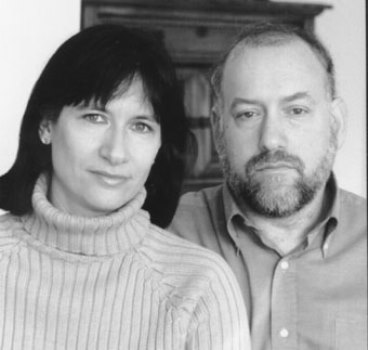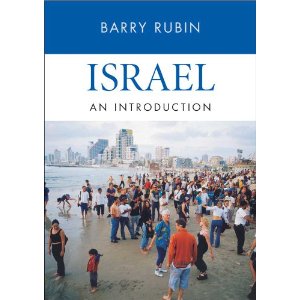Judith Colp Rubin, a native New Yorker and graduate of the University of Chicago, has been a foreign correspondent in the Middle East for various American newspapers.
She was married to Barry Rubin, who died in 2014. A former Fulbright and Council on Foreign Relations fellow who received his PhD from Georgetown University in Washington in 1978, he was at first a left-wing pro-Palestinian activist.

He contributed to such publications as MERIP Reports, the Journal of Palestine Studies, and the Communist-founded ultra-leftist Guardian, published in New York.
But he grew disillusioned with the far left and moved to Israel in the 1990s, where he founded the Global Research in International Affairs Center (GLORIA), located in Herzliya, 10 kilometres northeast of Tel Aviv.
A prolific author, Rubin wrote dozens of books about the Middle East region and the Israeli-Arab conflict, including The Israel-Arab Reader, The Long War for Freedom: The Arab Struggle for Democracy in the Middle East, The Truth About Syria, and Israel: An Introduction. He also frequently wrote for the Jerusalem Post.

Silent Revolution, published a year before his death, describes how the Left rose to political power and cultural dominance in the United States. His very last volume, Nazis, Islamists, and the Making of the Modern Middle East, co-authored with Wolfgang G. Schwanitz, was published just before his death.
Barry and Judy co-authored several books on the Middle East, terrorism, and America’s modern-day reputation. Their 2003 book, Yasir Arafat: A Political Biography, was an in-depth look at the life and political career of the late Palestinian leader.
Hating America: A History, published in 2004, addressed various aspects of the ways in which the United States has been vilified, concentrating in general on the opinions held in European nations.
They also co-authored Anti-American Terrorism and the Middle East: A Documentary Reader, in 2003, and Chronologies of Modern Terrorism in 2008.
Judy is now the honorary president of what has been renamed the Rubin Center for Research in International Affairs.
The current director, Jonathan Spyer, holds a Ph.D. in International Relations from the London School of Economics and a Master’s Degree in Middle East Politics from the School of Oriental and African Studies, University of London.
The Center publishes two quarterly journals, the Middle East Review of International Affairs (MERIA), and Turkish Studies. They cover developments in the region from a wide variety of viewpoints, including American policy, radical movements, and minorities.
As well, it produces analyses and reporting on the Middle East by research associates and scholars.
Martin Kramer, the founding president of Shalem College in Jerusalem, wrote an appreciation of Rubin on the first anniversary of his death.
He noted that Barry was “a passionate advocate for his adopted country, Israel, and as a tireless scholar who generated a steady flow of writings and an astonishing array of initiatives: a think tank, several journals, and many conferences. “His highly regarded expertise made him the go-to source on the Middle East for journalists, diplomats, and some Israeli public figures.”
Quite a legacy indeed, and one which Judy and the center try to carry on.
Henry Srebrnik is a professor of political science at the University of Prince Edward Island.
